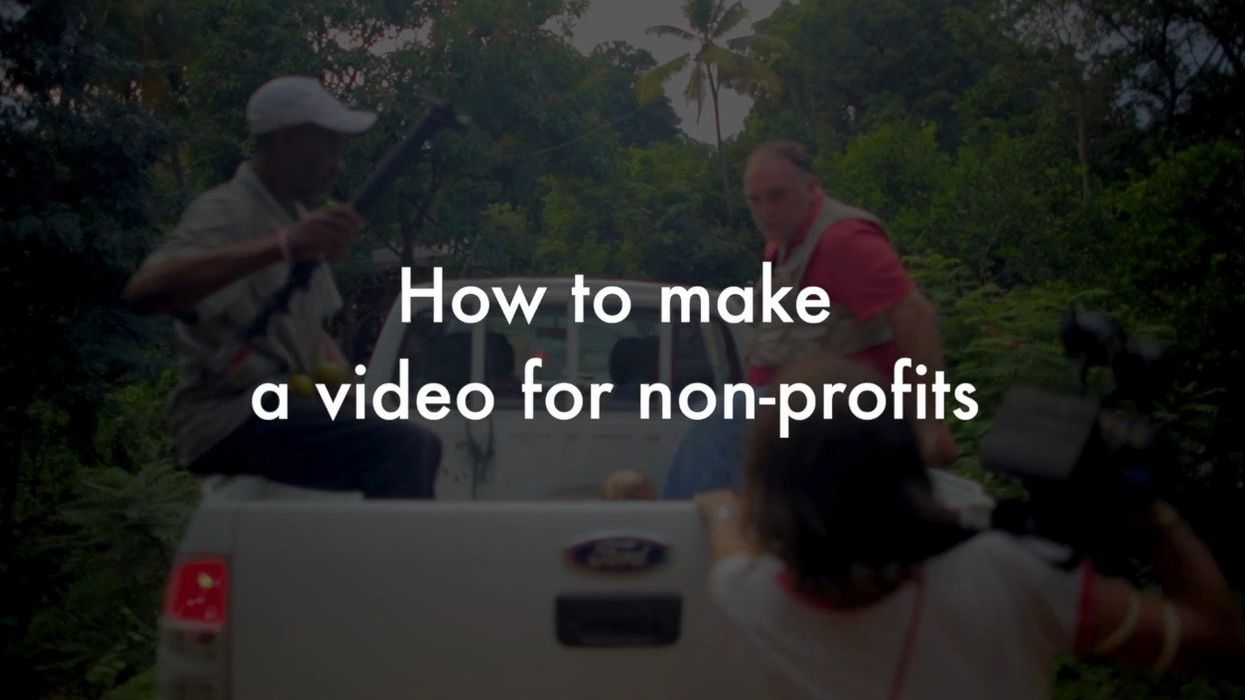How to Make a Video for Non-Profits: 34 Tips and Examples to Help You Create Better Films

Many of you reading this site might want to work in feature films at some point, and even if you have, that doesn't mean it's the only creative game in town. There is plenty of work out there in the form of non-profit videos, many of which can be rewarding personally (of course, you may also only be interested working in the realm of non-fiction). While it might look like making a documentary on the surface, there are plenty of key differences between the two forms. Sebastian Lindstrom, from What Took You So Long?, sent over this video that takes you inside the non-profit video, and gives some pointers and examples to help you make the best film possible.
I think one of the best lessons is not using too much voiceover. Just as in dramatic filmmaking, too much voiceover can overshadow the story you're trying to tell. Letting the interviews do the work of voiceover can be much, much more powerful. Having a sort of omniscient voice constantly hovering over almost every frame of video can get tedious, but letting the real emotions of the story shine through can be much more effective.
If you do choose not to use voiceover much (or not at all), one of the things I have found is that you need to have a pretty specific idea of what it will look like and sound like before you go in. While you certainly will be improvising questions based on answers, you're not going to be able to tell the best story if all of the elements aren't there, so there are specific answers that you'll want to be looking for to construct the best narrative.
I know in my own work I have found some things that work better than others, but I usually find that some of the more candid moments and most realistic reactions tend to happen when the interviewee is talking about something totally unrelated to the topic. You're bound to come across those who are nervous on camera, so getting these "real" or candid moments can help provide just a little more humanity and help the audience connect with that person more even if they were nervous while answering your questions.
You can check out some of the videos from What Took You So Long? below:
For those of you who work in non-profit videos, what would you add to the advice above?
Links:











